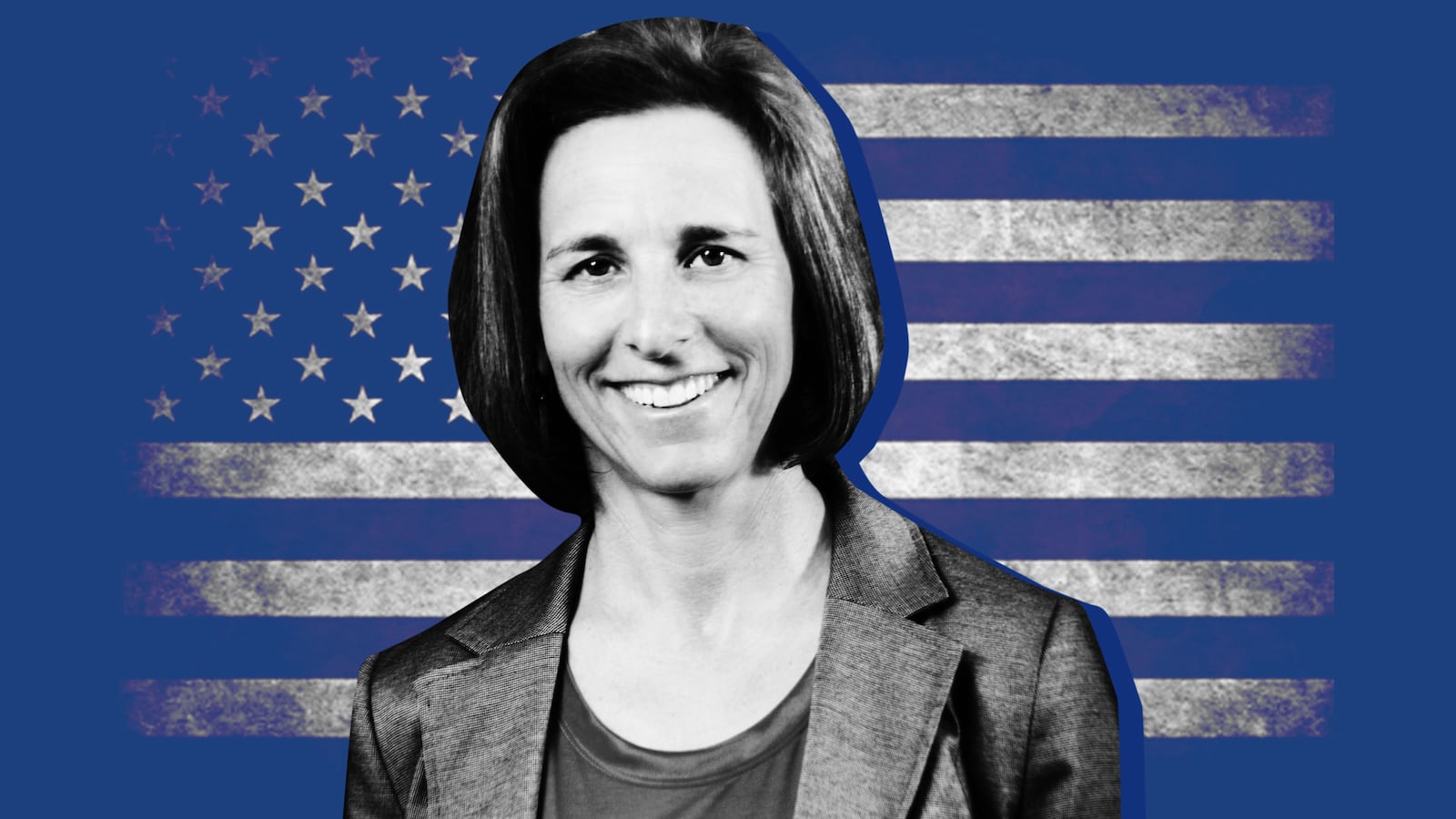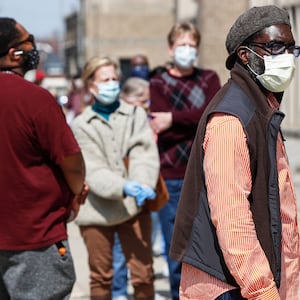Republicans did everything they could to rig the Wisconsin primary to re-elect a Trump-endorsed judge to the state’s Supreme Court.
But the gambit didn’t work. To everyone’s surprise, liberal Jill Karofsky defeated conservative Judge Daniel Kelly, the first time in a dozen years that voters rejected a sitting state Supreme Court judge.
Seeing the upset win as a harbinger of things to come, Democratic strategist James Carville ticked off a string of Democratic wins in Alabama, Kentucky, Louisiana, and now Wisconsin. “The coal mine is full of dead canaries,” he said. “I don’t know how many dead canaries we need to see to say something’s going on here.”
To ensure low voter turnout and discourage Democrats from voting in Wisconsin, Republicans refused to delay the election despite the threat of the coronavirus, forcing voters to stand in line for hours unprotected at a limited number of polling places. In Democrat-heavy Milwaukee, five voting sites were open instead of the usual 180, and in the liberal college city of Madison, a third of the polling stations were closed.
“When they refused to move the date, I figured they got this in the bag,” says Joe Heim, emeritus professor of political science at the University of Wisconsin at Lacrosse. He explained that the Republicans have a very sophisticated get-out-the-vote operation where they send out applications for absentee ballots to select groups. Between the coronavirus and the reduced number of polling places, “It didn’t seem to portend well for the Democrat,” Heim told the Daily Beast.
Ironically, the vote for the Wisconsin state Supreme Court is a non-partisan election, “but it’s the most obvious partisan election I’ve ever seen,” says Heim. Kelly was a past president of the Milwaukee chapter of the Federalist Society. President Trump endorsed Kelly several times, including during his daily coronavirus briefing. And the Republican Party authorized and paid for mailings that backed Kelly. “They made no bones about it,” says Heim. “Plus there were two court decisions along partisan lines to let the election proceed, the U.S. Supreme Court 5-to-4, and the state Supreme Court 4-to-2, which led me to think they had a done deal.”
Karofsky ran on the slogan “Jill for Justice,” and she won by almost 11 points, 55.3 to 44.7, a significant margin in such a divided state. A former prosecutor and assistant attorney general who specialized in violence against women cases, her résumé includes completing two ironman races. She now runs 50-mile ultra-marathons.
Wisconsin is the most prized swing state. Democrats have carried every statewide seat since November 2018, when they unseated Republican Governor Scott Walker, once a leading candidate for president. Yet polls show Trump does slightly better in Wisconsin than he does nationally, and the state is seen as a tossup.
Republicans have an iron grip on the state legislature. Karofsky’s win narrows the partisan gulf on the Supreme Court.
Walker was seeking a third term when he was defeated in 2018 by Democrat Tony Evers. “The Republicans have been in denial since 2018,” says Heim. “Within a month, they held a special session and stripped Evers of certain powers.” They have taken obstruction to new levels, refusing to confirm much of Evers’ cabinet, and using a rare power to recall the governor’s acting commissioner of agriculture for pushing back when the legislature wouldn’t release money for mental health care for farmers suffering through dairy farm losses.
“I’m not a Democrat,” Heim adds. “I’m an Independent, but any reasonable person can see this is wrong.”
Republicans eliminated straight-ticket voting, which more Democrats used. And they are in the process of trying to remove people from the voter rolls if they haven’t voted in the last couple of years. “We all know what’s going on,” says Heim. “Young people and college students and people who are renting move,” and they also vote Democratic.
Republican lawmakers can get away with this blatant bias because the state is so gerrymandered. Democrats got 56 percent of the vote in 2018 and Republicans only lost one seat in the state assembly. They went from 64 seats out of 99 to 63. “When you’re in a safe seat, you don’t have to listen to the people,” says Heim.
Asked if the November election will change those numbers, Heim says no. Only a redrawn congressional map would address those inequities, and the U.S. Supreme Court ruled in a 5-to-4 decision last year that claims of Wisconsin’s gerrymandering are inherently political and beyond the scope of the judiciary.
Karofsky won by double digits, just as Carville’s client, the late Pennsylvania Senator Harris Wofford, did in 1991 when he shocked the political world with an upset win over a popular former governor, foreshadowing Bill Clinton’s election the following year.
“This is going to be a big Democratic year,” Carville told the Daily Beast. “They know it, and we know it. I have not seen one piece of evidence, and I look for it, and I beg for it—I’m open to evidence. I see no evidence anywhere, nowhere, that Trump has any political power other than his political base. I see massive political impotence and there’s not enough political Viagra in the world for him to win.”






